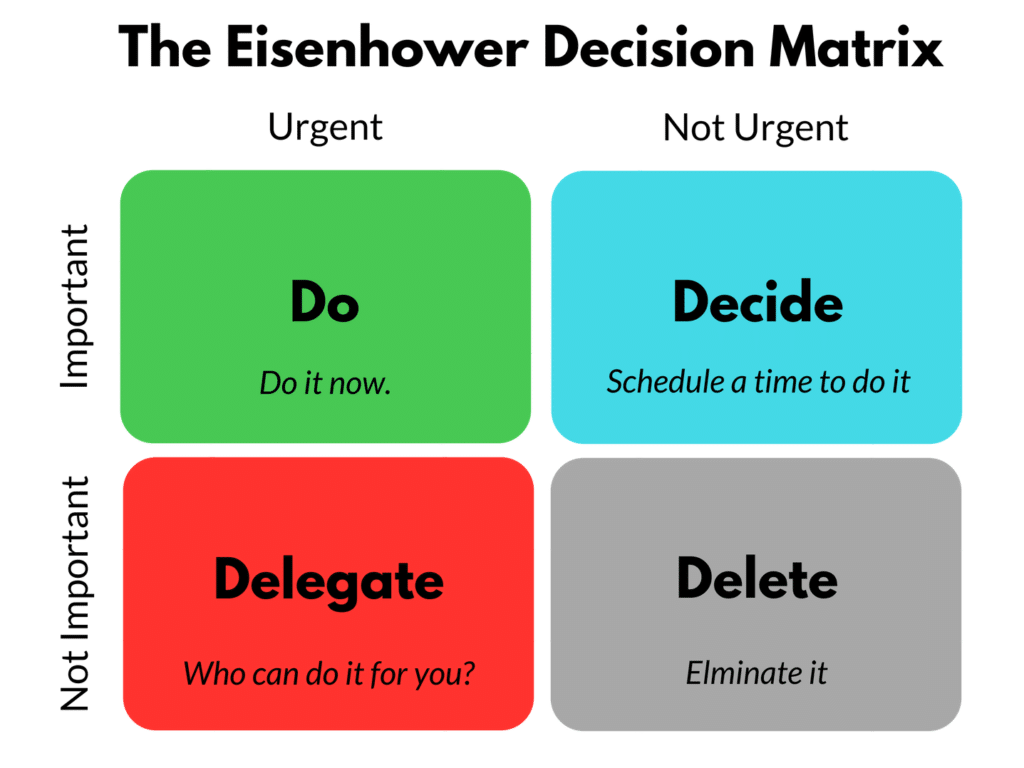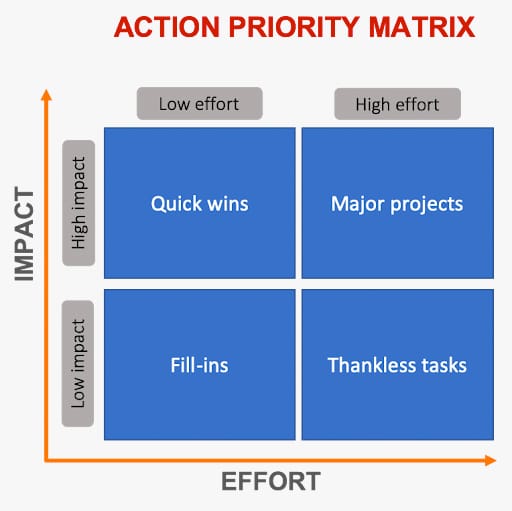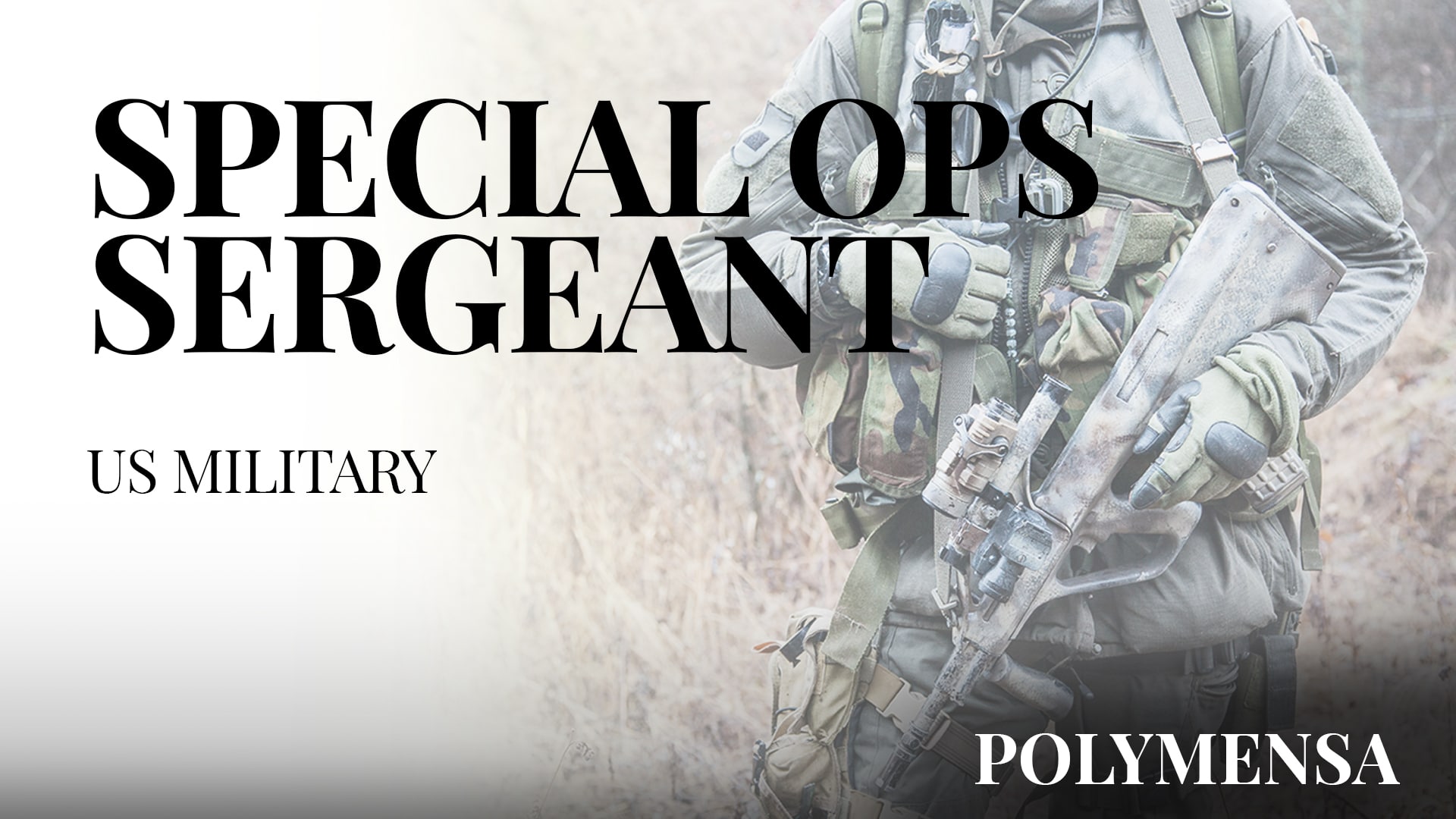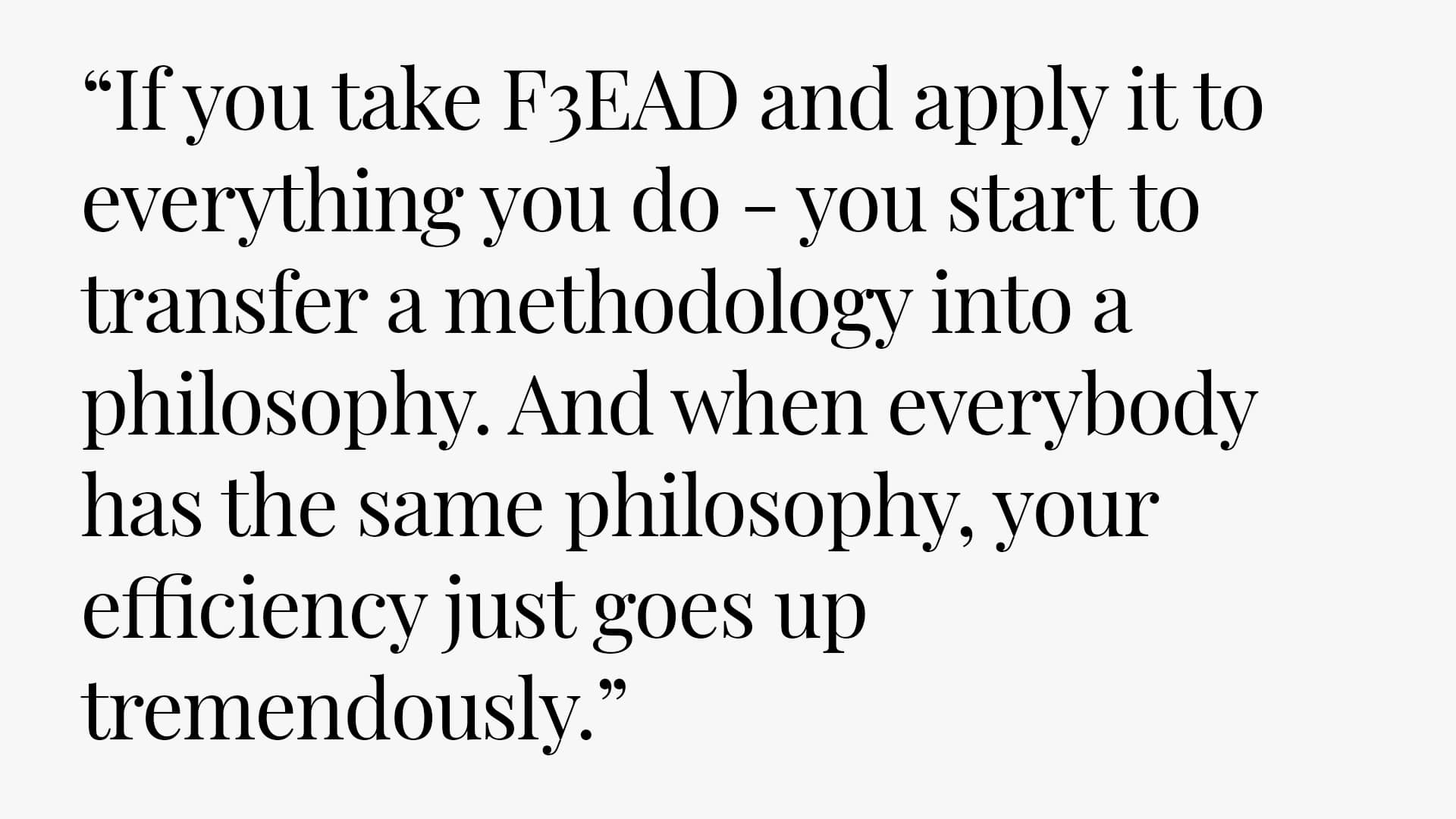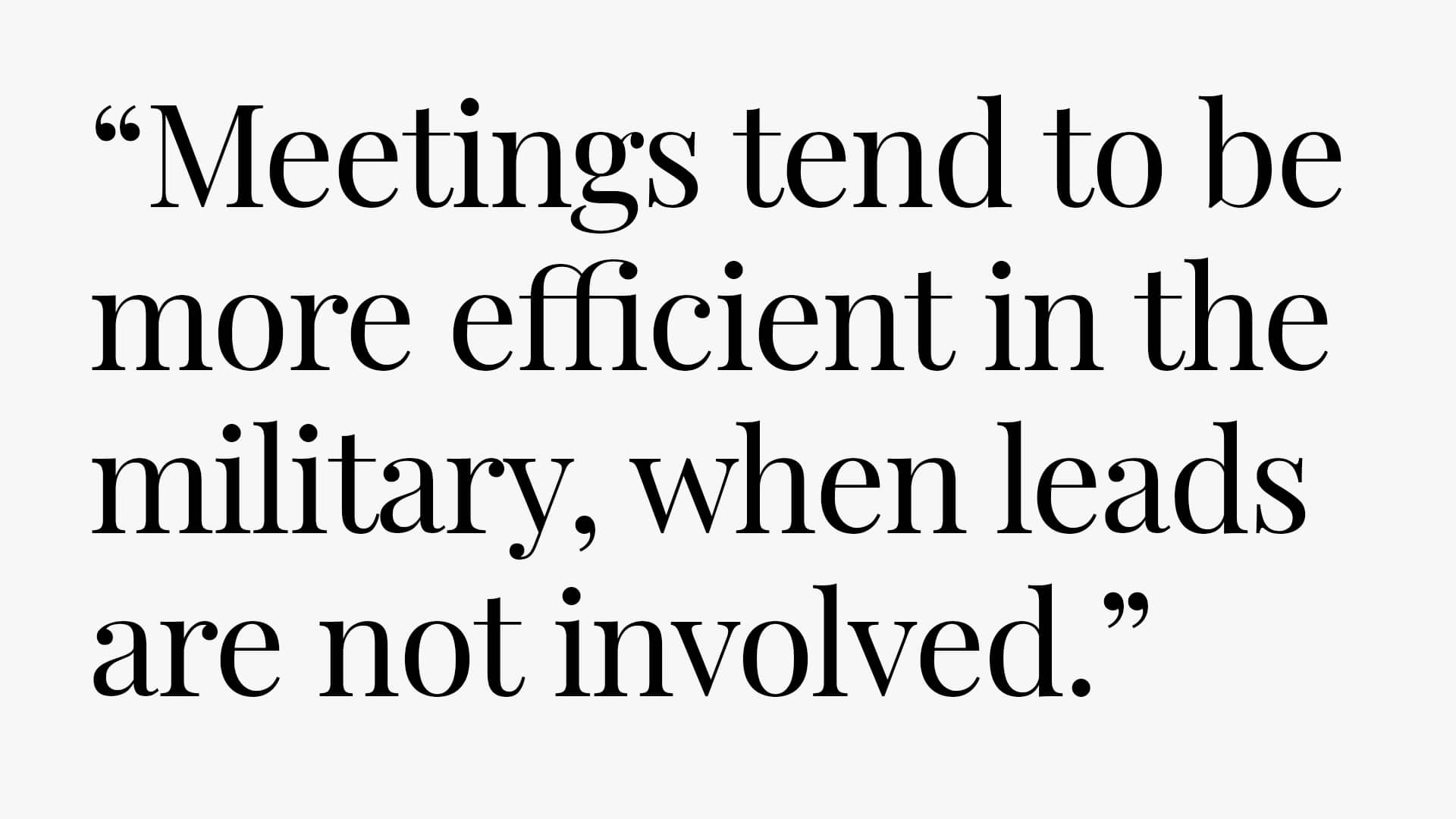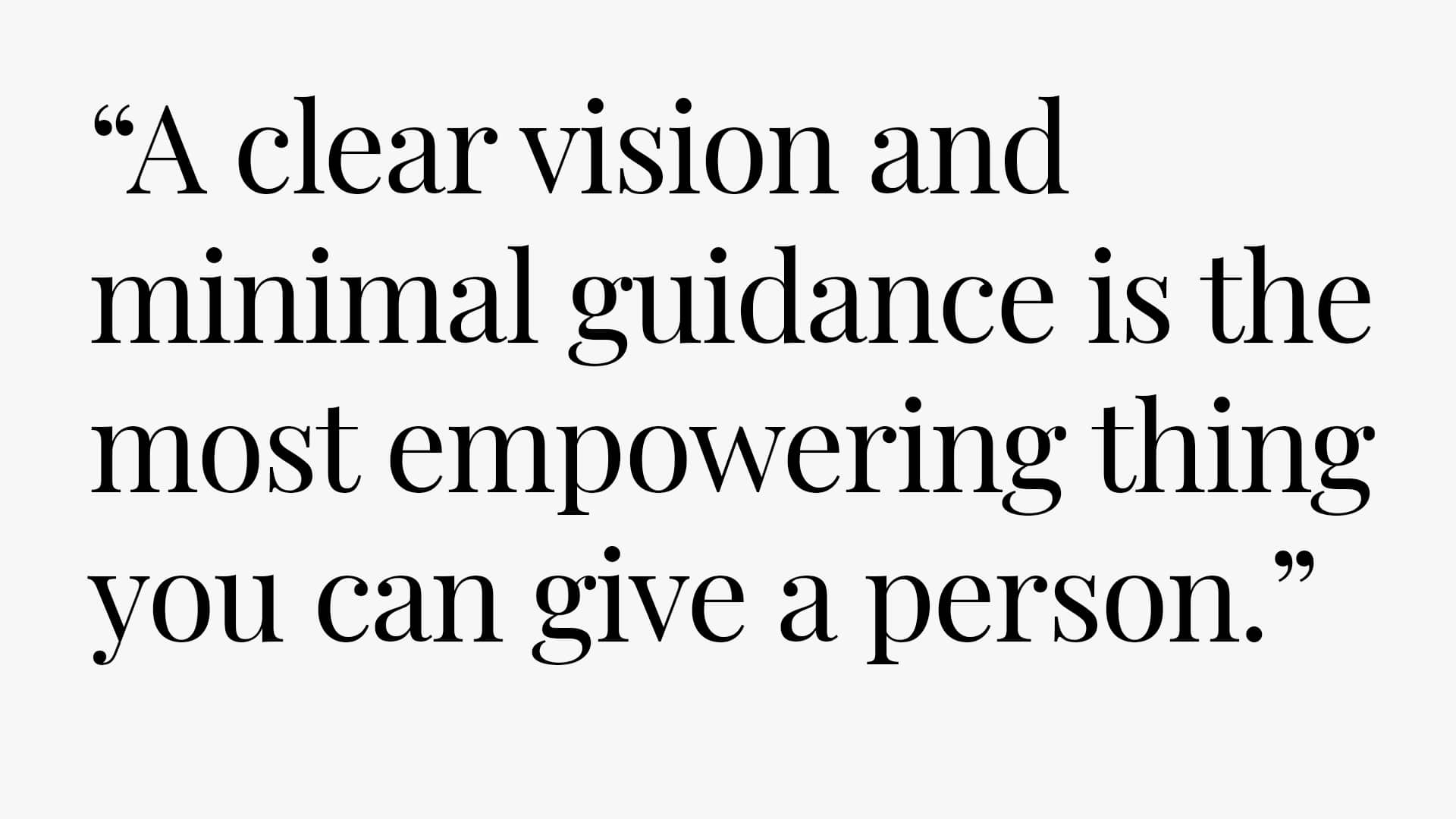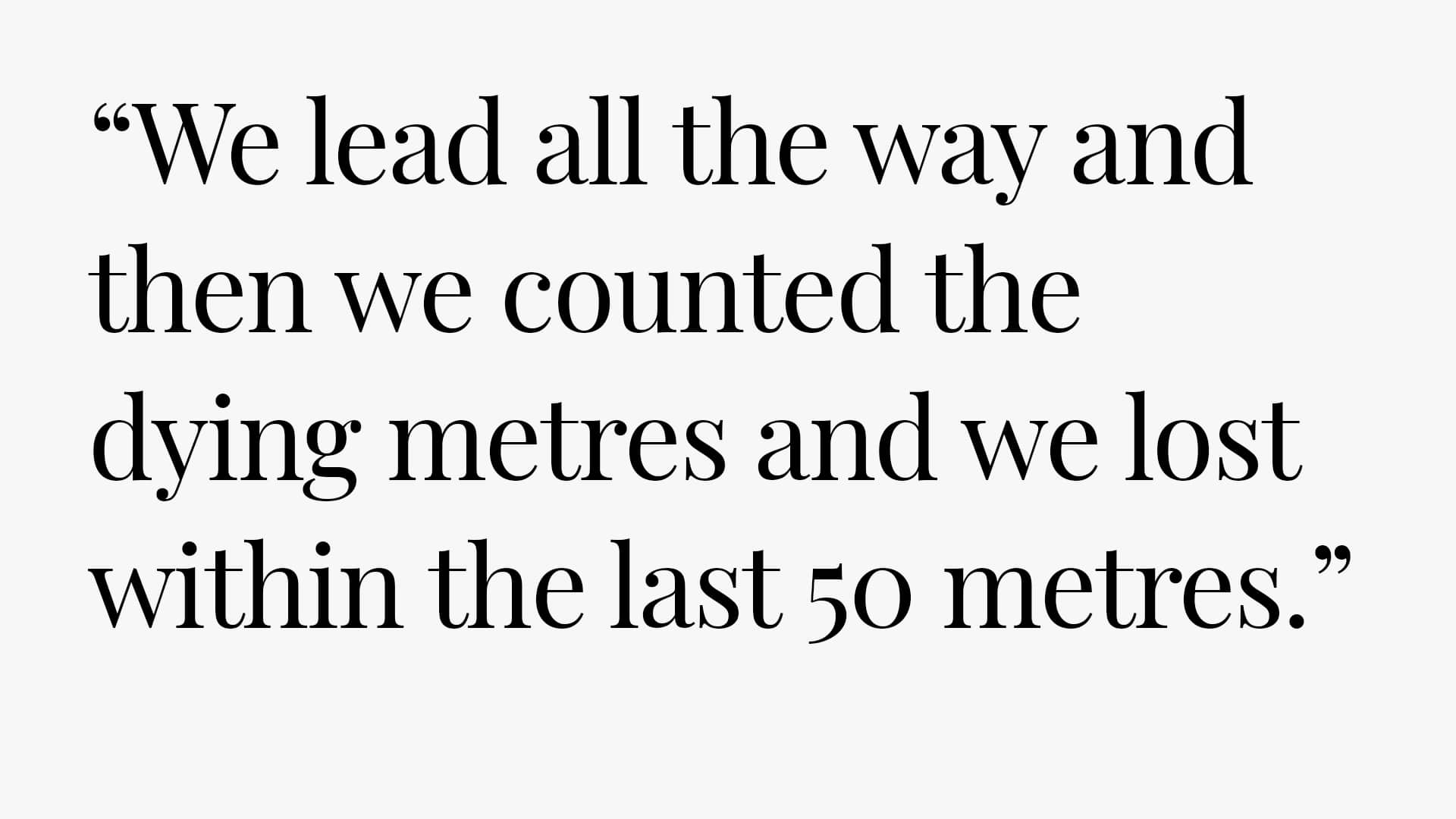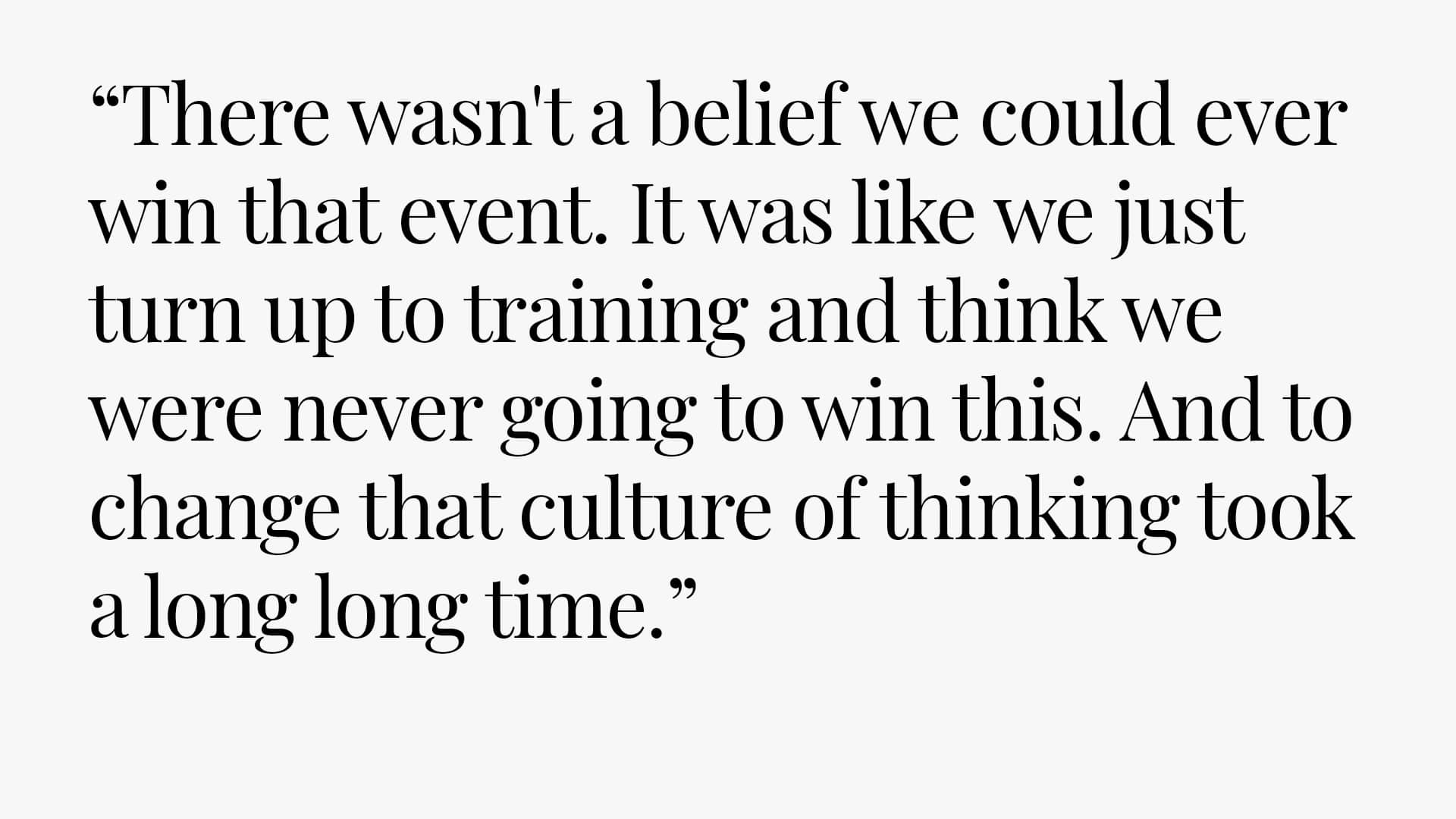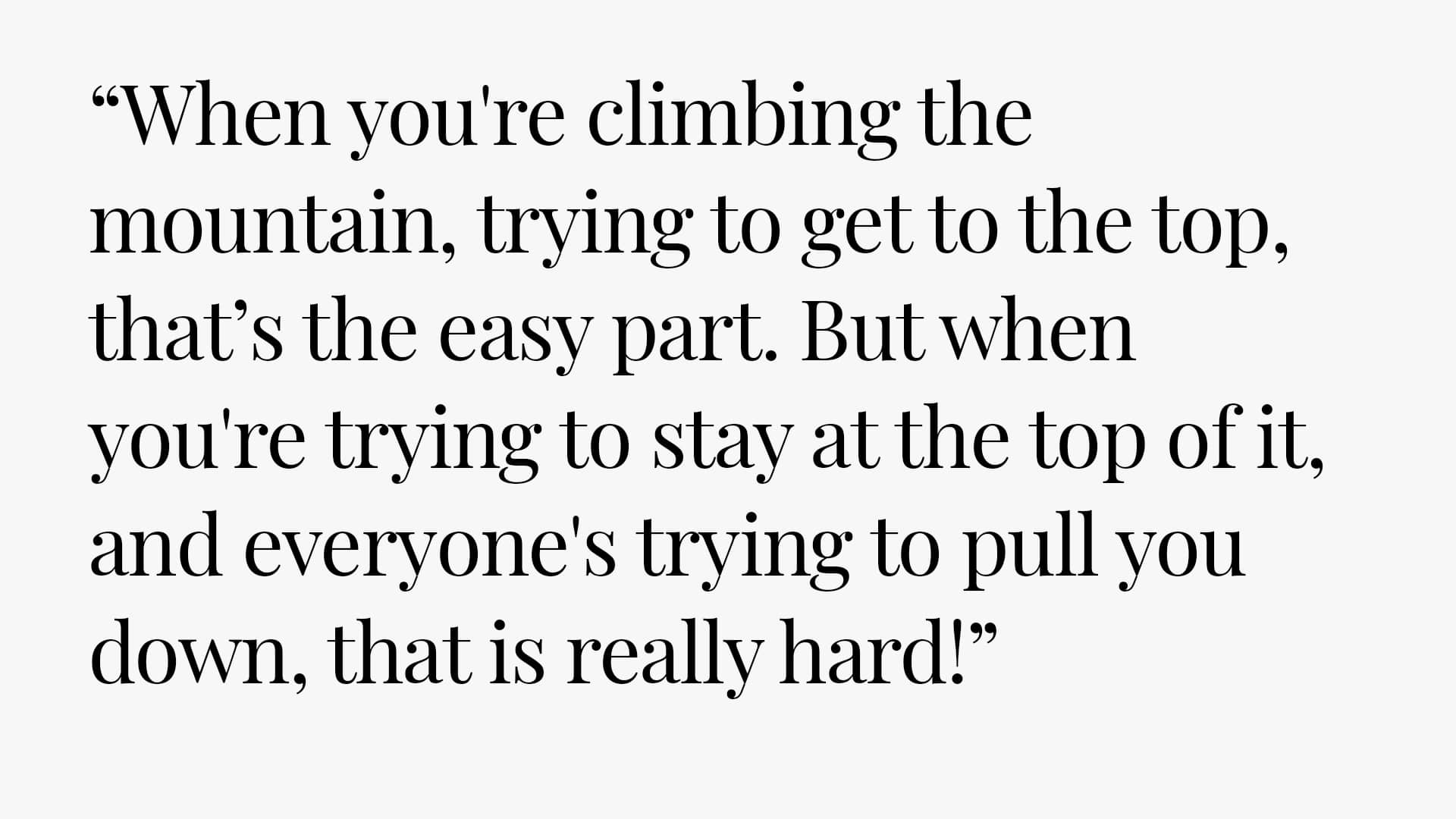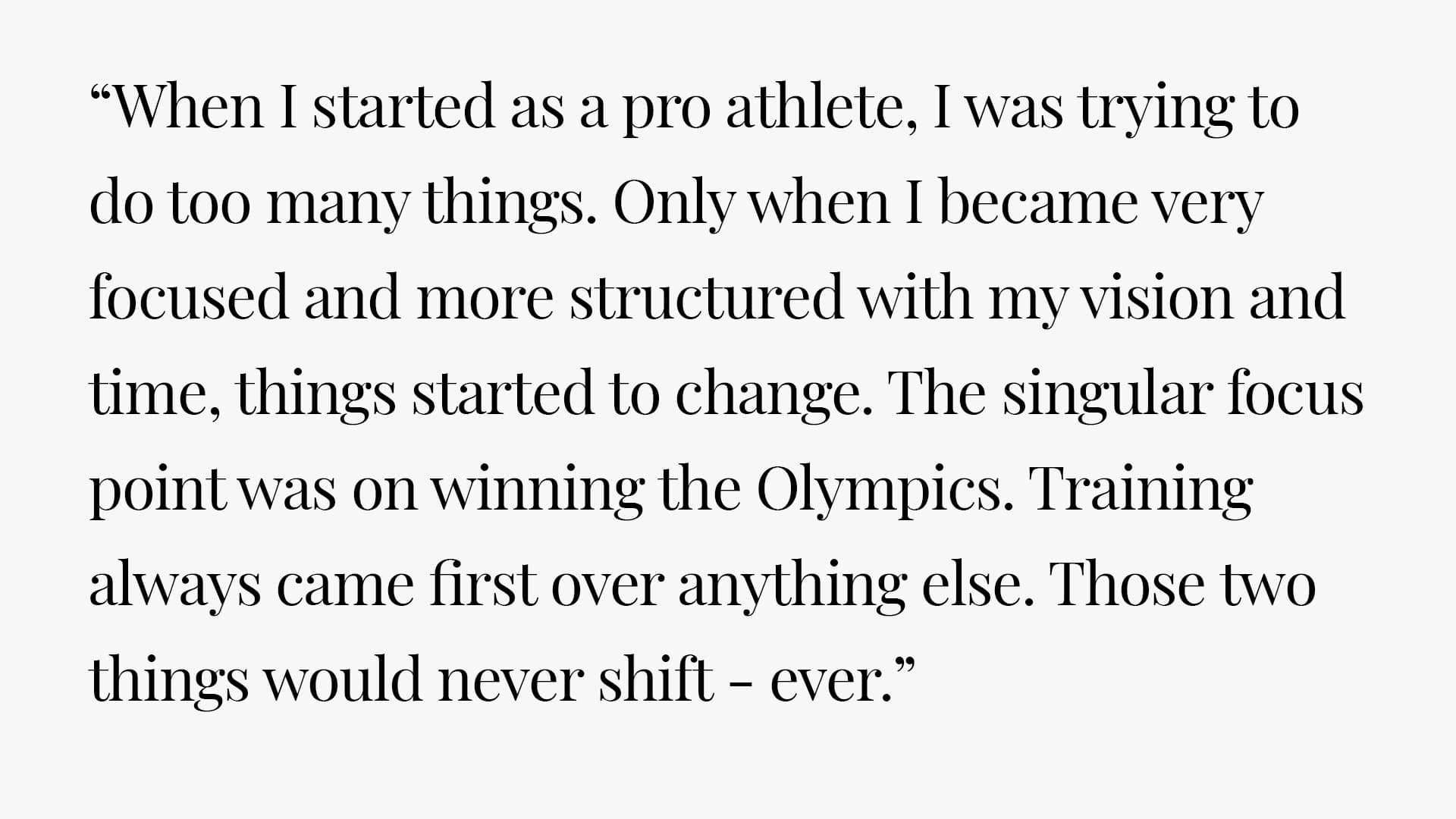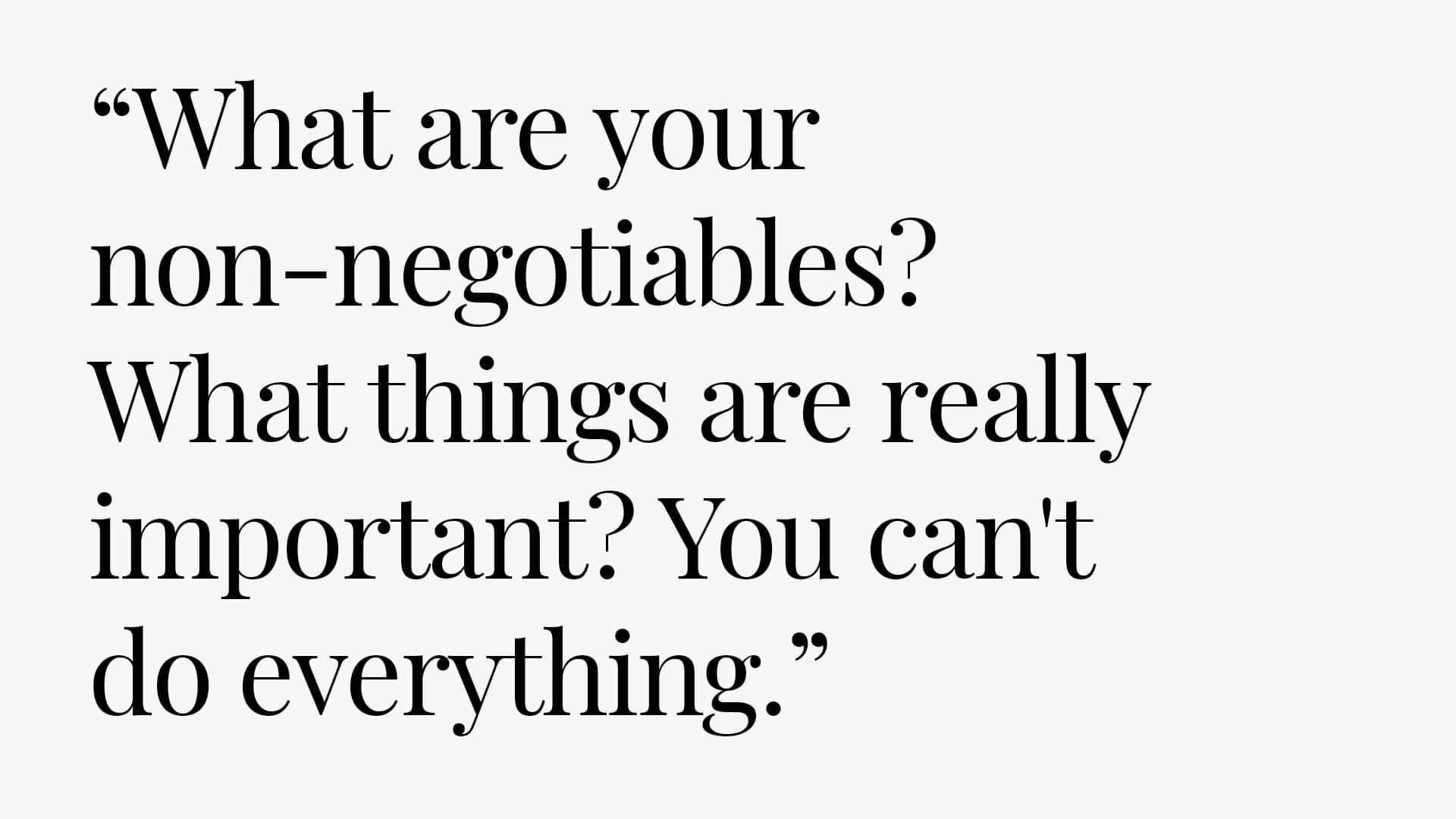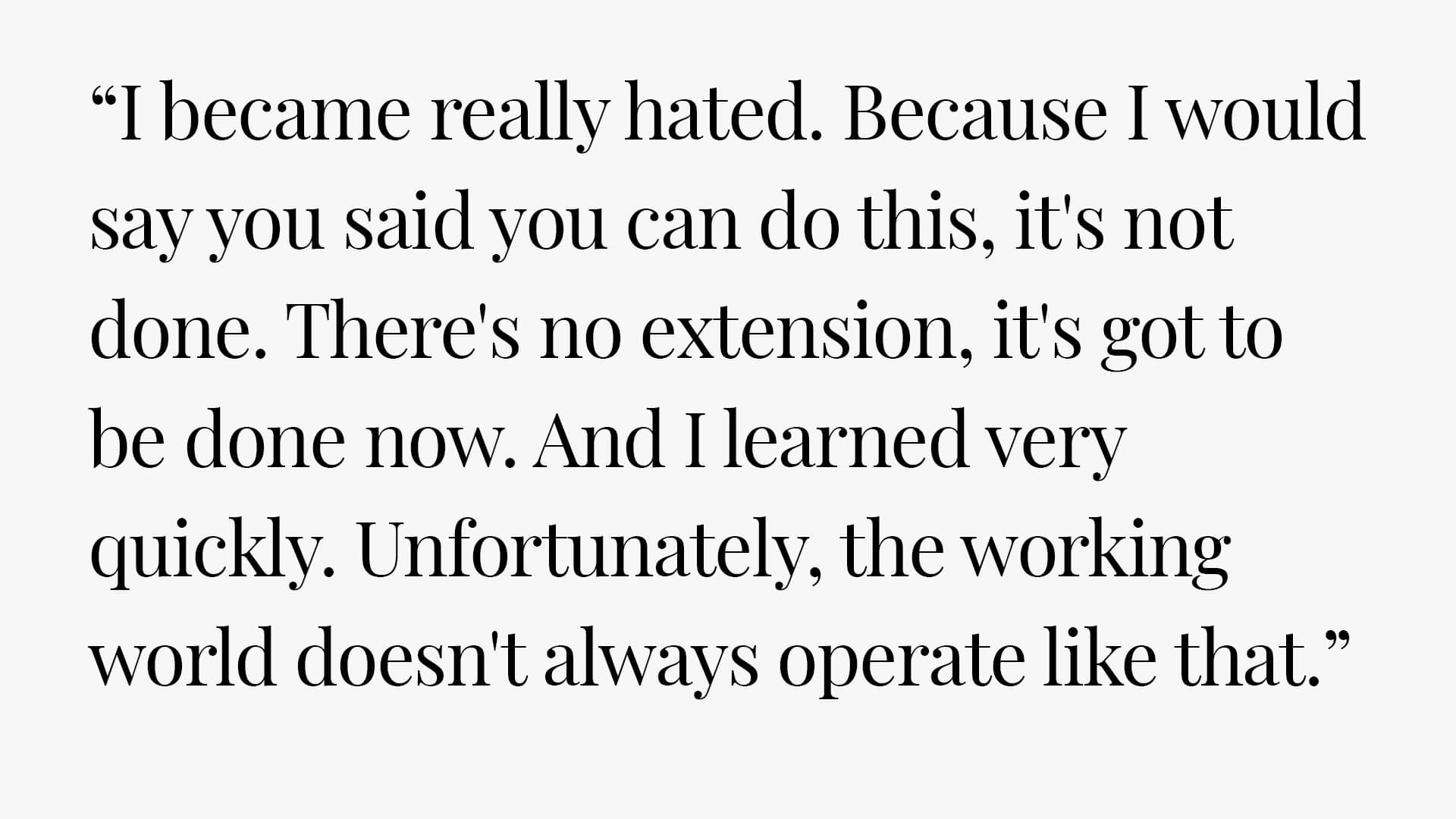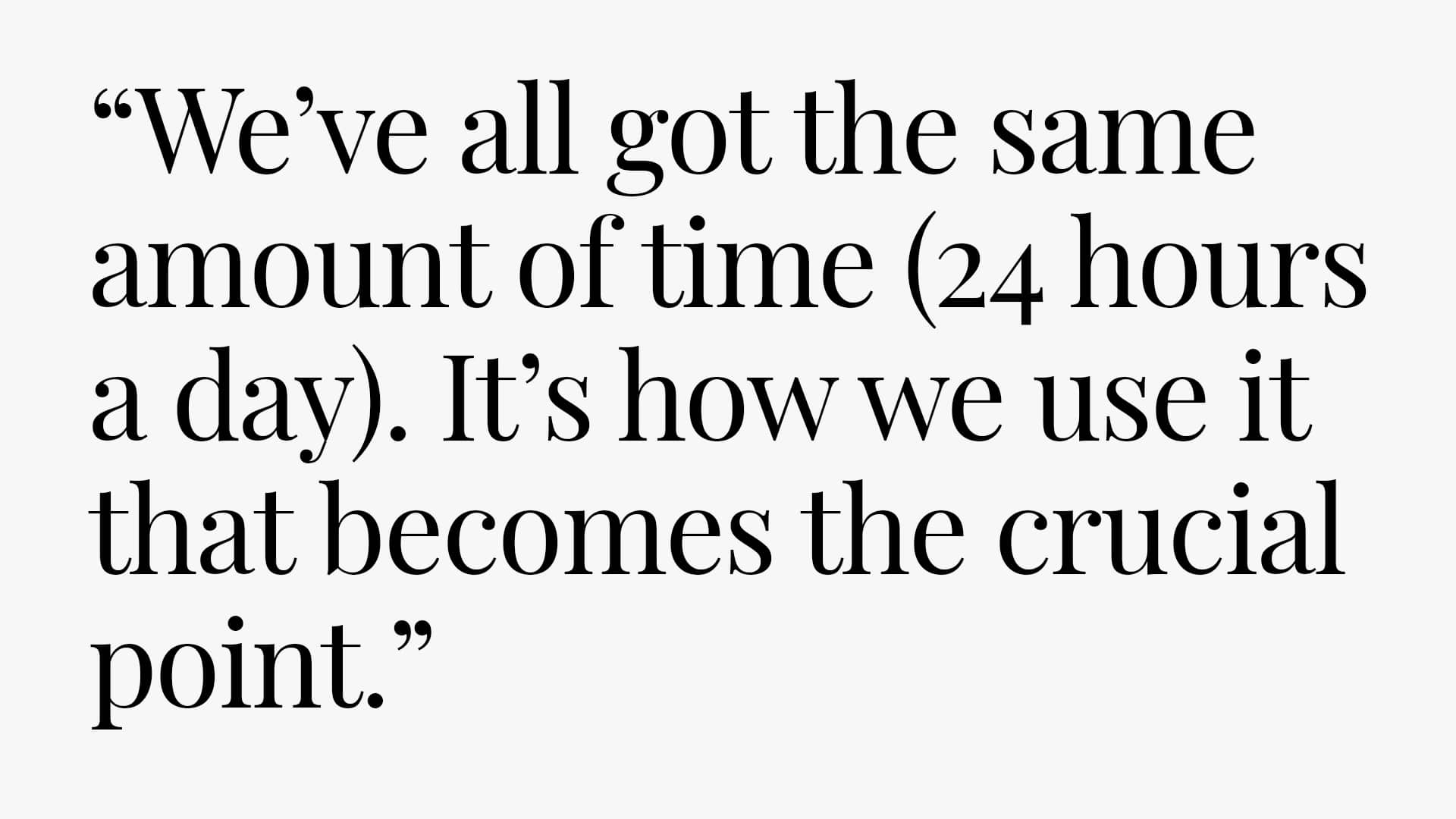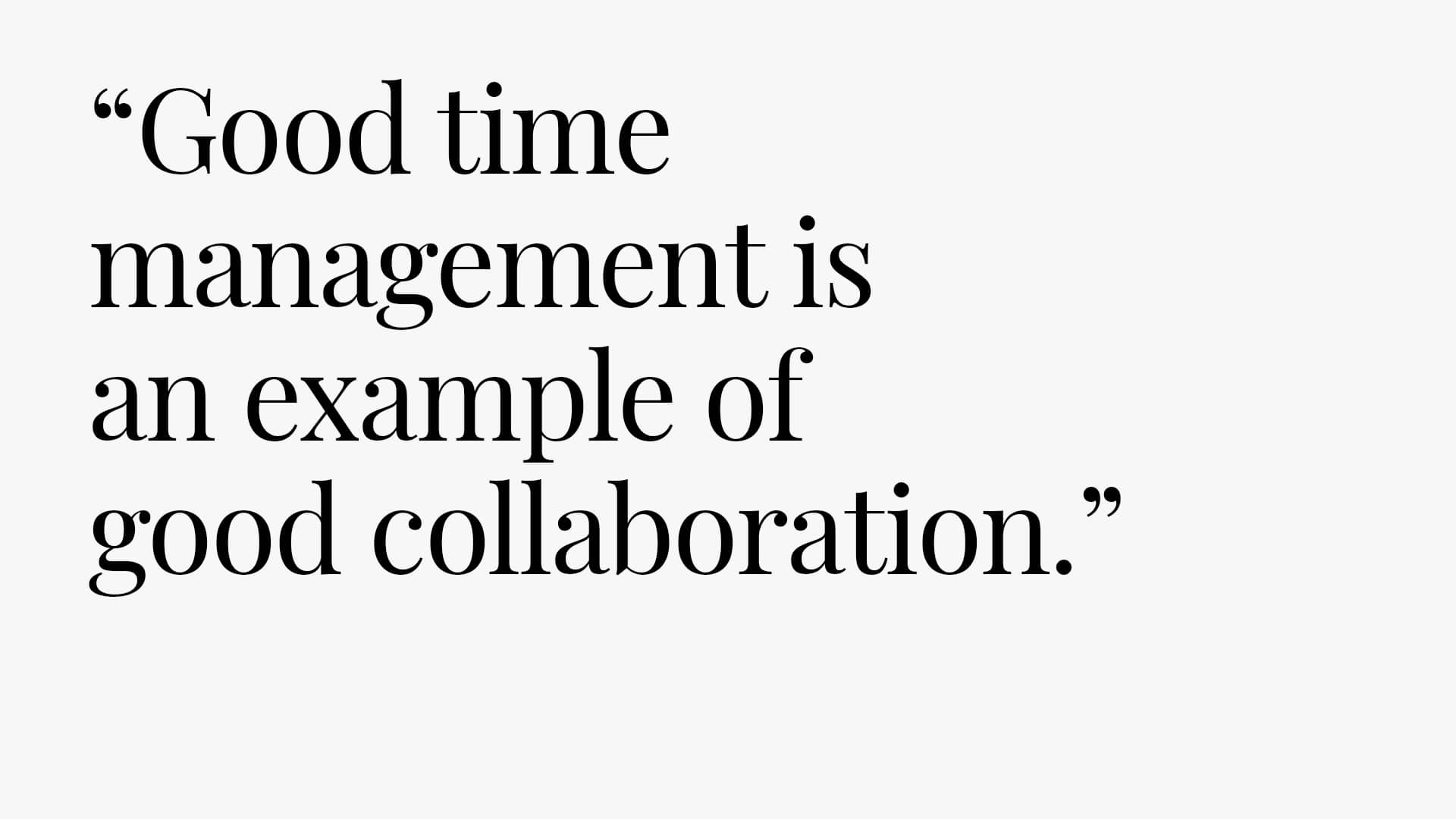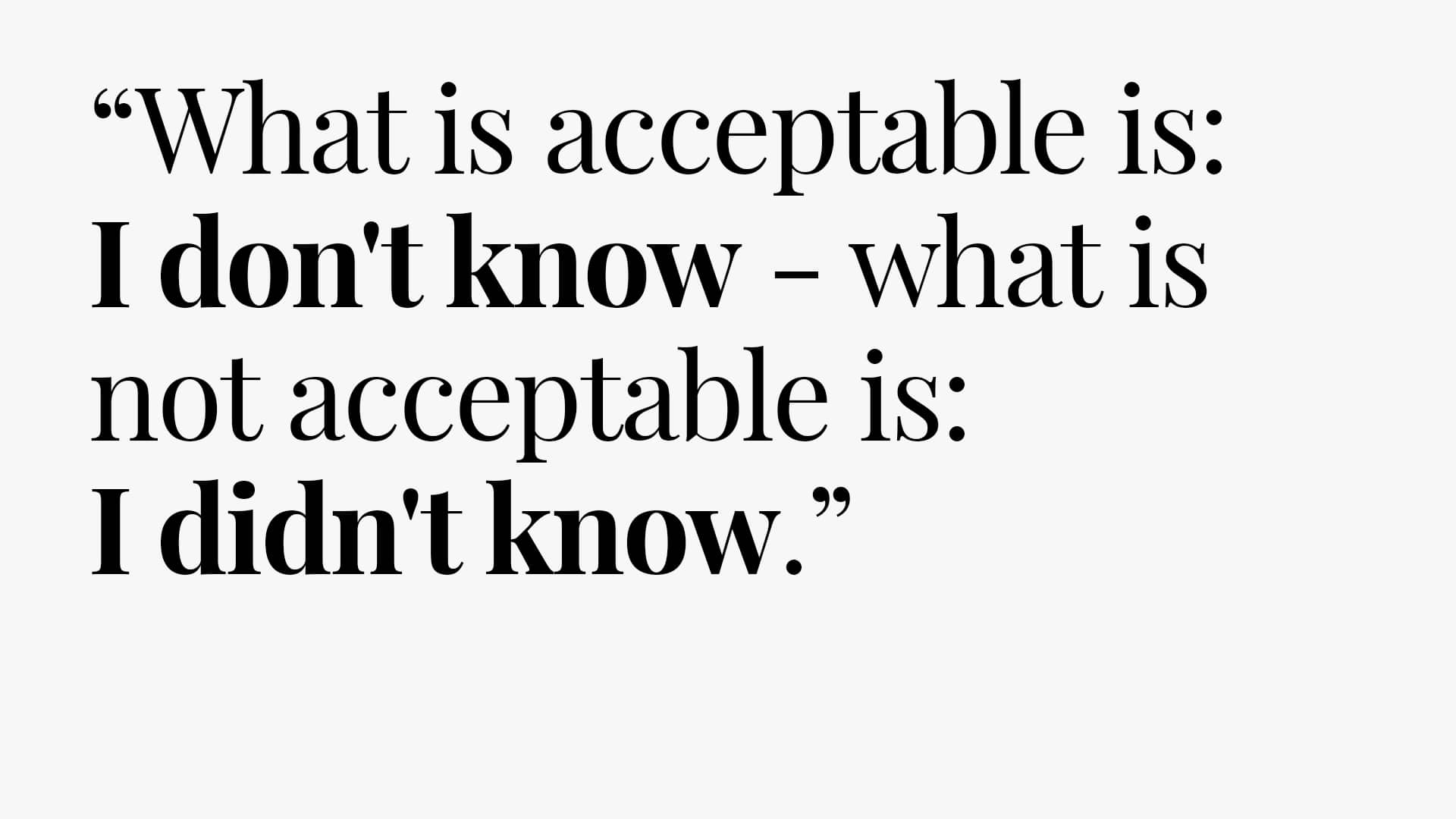
Different team structures in agencies
February 23, 2021
The shortcomings of an agency non-executive director
October 6, 2021What time management skills work for you?
Time management like with so many other working methods is subjective. What works for you, won’t work for the next person.
It’s also less about what time management methodology you end up using, but more about developing the discipline to stick to it. Which often is down to grit and your why - but don’t question your why too much.
Personally I’m a big fan of the Ivy Lee Technique, as I like to zone out on one particular task.
Time management was one of the themes we explored in the last 6 months at Polymensa.
We had the privilege of meeting…
- Olympic Gold Medalist Rower Mark Hunter
- A special ops sergeant from the US Military
- Rebecca Brennan Marketing Director at product studio Kyan
- Simon Norris founder of UX agency Nomensa.
Here are some timeless tips - oh no you didn’t, Daniel! From four very different perspectives.
This article is broken down into:
- Time Management Techniques
- Four different perspectives on time management
Special Ops Sergeant - US Military
Mark Hunter MBE - Olympic Gold Medalist Rower
Simon Norris - Founder of UX agency Nomensa
Rebecca Brennan - Marketing Director at product studio Kyan - Time Management Books
Time management techniques
Ivy Lee technique
Suitable for time planning.
At the end of each day, write down the six (and only 6) most important things you need to accomplish tomorrow. Rank each of those 6 items on a separate sheet of paper in descending list of true importance (you can use the Eisenhower box to help with this).
When you begin work, focus the first portion of your day (or when you are most productive - see ultradian rhythm for one way to explore this) exclusively on the first item that you wrote down until it is accomplished. Once the first task is complete, move down the list in the same fashion until the end of the workday. Whichever items were incomplete (if any) will be moved to your list for the following day. Rinse and repeat.
See a deeper explanation of the technique here
Time Boxing technique
Suitable for time planning.
The time boxing time management technique involves 5 steps:
- Find suitable tasks
- Define your goals
- Set the time
- Work and assess your results
- Claim your reward
See deeper explanation of the technique here
Eisenhower Box
Suitable for prioritisation.
See deeper explanation of this method here
Action Priority Matrix
Suitable for prioritisation.
See deeper explanation of the technique here
Pomodoro technique
Suitable for increasing productivity.
- Choose a task you'd like to get done
- Set the Pomodoro for 25 minutes
- Work on the task until the Pomodoro rings
- When the Pomodoro rings, put a checkmark on a paper
- Take a short break
- Every 4 pomodoros, take a longer break
Look up ultradian rhythm for the scientific theories behind this technique.
Tiny habits technique
Suitable for habit creation.
The first is about identifying your specific desired outcome:
Feel less stressed at work
Wake up at 6am every work day
Eat 1x fruit a day
Drink 2L of water each day
Next, identify the easy-win behaviours — “Tiny Habits” — that will put you on the path to that goal. This requires introspection, because the going method for reducing stress may not be the behaviour that will work for you, Fogg (the creator of Tiny Habits) emphasised in an interview with NPR. Maybe you’d find short walks more meditative than meditating, for instance, or perhaps jogging with your retriever sounds more inviting than lacing up for a spin class.
Finally, find a trigger—something that you already do as a habit—and graft the new habit onto it. That might mean putting out an apple on the counter every time you start the coffeemaker in the morning.
See a deeper explanation of the technique here
Keeping A Journal technique
Suitable for changing behaviours and habit creation.
I love this technique, because it gives you time to reflect on what is working and what isn't working in your life.
I have a journal mainly for my trading and I am ceremonial about writing it.
- Step 1: What are you trying to do / change?
- Step 2: Have a detailed plan (this should include a start and end target)
- Step 3: Execute the plan
- Step 4: When you got to the defined 'end' write a journal entry
- Step 5: What you include is unique to your plan, but you can use things like what worked well, what didn't work well, what are you going to do different next time?
- Step 6: Then change your plan accordingly
All pro athletes keep journal. They tend to use this cycle of action to improve their performance: Plan, execute, evaluate and learn. Find out more about how an hourglass can help you retain information and keep a journal.
Classified
Special Ops Sergeant, US Military
Technical Time
"I jump out of an aeroplane every once in a while, not because I like it, because they tell me to and that has a lot of 'technical time' involved with it. The coordination level that it takes for an aircraft to fly at a certain speed, to get all people on the aircraft and then to land on a certain target at a certain time. Being off by minutes and seconds can get you killed. It takes a lot of coordination. However, the the misnomer is that military folks are really good at that level of time management i.e. technical time. That means there is already a whole plan. So the people that are actually jumping out of the plane, sometimes that's me, and in those cases all I have to do is show up on time and stick to the plan - or face the consequences if my technical time is off."
Syncing different schedules using Trigger Lanes
"In Special Operations you get more holistic time managers or mission planners. Regular army personnel show up where they they're told to be. Because if they don't, they'll suffer the consequence. On the on the special operations side this is a little bit different. Because I don't get told where I have to be and I have to plan that all on my own.
In the case of an airborne operation, like jumping out of a plane. Everything is already synced up. I am tasked to create that plan. I need to consider what exactly the mission is, where exactly we need to land. And then what happens as soon as you land. If you are picked up by a convoy, what happens next and so on. Also, what happens if the convoy does not arrive. These dependancies are called Trigger Lanes in the military.
F3EAD
The F3EAD cycle (Find, Fix, Finish, Exploit, Analyse and Disseminate) is an alternative intelligence cycle commonly used within Western militaries within the context of operations that typically result in lethal action, such as drone strikes and special forces operations. A basic summary of the phases of the cycle is as follows:
Find: Essentially ‘picking up the scent’ of the opponent, with the classic “Who, What, When, Where, Why” questions being used within this phase to identify a candidate target
Fix: Verification of the target(s) identified within the previous phase, which typically involves multiple triangulation points. This phase effectively transforms the intelligence gained within the “Find” phase into evidence that can be used as basis for action within the next stage
Finish: Based on the evidence generated from the previous two phases the commander of the operation imposed their will on the target
Exploit: Deconstruction of the evidence generated from the finish phase
Analyze: Fusing the exploited evidence with the wider intelligence picture
Dissemination: Finally publishing the results of the research to key stakeholders
Transforming a time management methodology into a philosophy
"If you take the F3EAD model and you apply it to everything you do it transfers from a methodology into a philosophy. When everybody has that same philosophy, your efficiency just goes up tremendously. People start making their own choices in their own discipline, based on this shared philosophy."
Chronotypes
"We primarily have some type of model that everybody can use and is generally agreeable with everyone. But then you work that model around each person, to meet their different Chronotypes."
Everyone can be trained
"There's a difference between discipline and irreverence. It takes an adult approach to get this right. If you micromanage people to instil a methodology that you're attempting to turn into philosophy, it's never going to work. The next thing is to understand that some people are disciplined and some people aren't. And in most cases they are probably not adopting the time management philosophy because they haven't been trained to be disciplined. The only reason I show up on time in my civilian life, is because I was trained to be disciplined. And anyone can be trained, literally anyone. I've been all over the world and I've worked with all sorts of different people and cultures, and everyone is definitely trainable. If there is irreverence, then that's a whole different problem."
Micromanagement vs empowerment
"I ended up working for this fella. He would wake up in the morning, come to me and tell me: Hey, you're going to Georgia. That was all the information I got. I had to figure out the rest of it. What happened with me internally is, I was hugely motivated. Because he gave me an opportunity to figure it all out and empower me to do my own work. To me it was like a dad asking his son to solve a problem. I wanted to impress you, because you've given me so much rope to hang myself. So now obviously, that's risky for the boss, because it can go very badly - especially in combat.
But I strongly believe when you know the strengths and weaknesses well of each team member, you can provide the overall vision and minimal guidance and they will get the mission done. With some flaws, but key is that you don't come down hard on them. Because those are great learning opportunities.
It does takes a lot of character development as a leader, to develop your team in a manner where they understand why you're giving such minimal guidance. On that note: I've also had to micromanage people before, but they never lasted long in my team."
Measuring performance and effectiveness
"We have to do physical exams every year. You have to run two miles and do a load of other things. At the end of it you get a score for your physical exam. That's a measure of performance.
A measure of effect is a little bit more nuanced, because it would require justification of what that effect is. It has to be a concrete effect, something you can measure. If I blow up a building with a missile. What was the actual effect of that? Did it eliminate a target or was it merely a step closer to the target? They are two different level of effectiveness.
Those are the two primary ways the military measures my success as a solider."
Mark Hunter MBE, Olympic Gold Medalist Rower
Maximising your time
"I've got four years before the next Olympic Games at this point. How do I maximise this next period of time. That's where time management really came to play for me. Some people look at time management as a daily thing, a weekly thing, but for me, it was not just that, but it was an Olympic cycle (exactly 3 of them for 12 years). It was a four year cycle. So having things in place the structure and having those short and long term goals was a key part of my time management."
Open conversations and honesty breeds efficiency
"Belief and accountability was a big thing. We're not here just to get the kit and enjoy it. Everybody had to play their part. Open dialect and honesty was a big thing as well. There was no BS here, we've got to be open and honest. How do we honestly make it work or do it better? Those were the fundamental things that really allowed us to go from being last to being first."
You don’t always have to give 110%
“It was okay not to give 110% every session. There are big competitions where you light it up and then there are small ones where we just need to do our best, but it might not be the level that we need to attain to win an Olympic final. The business world equivalent: You’ll have different projects going on that you're trying to pitch for RFPs or whatever it is. There are small ones, but then there are big ones, the ones you are going to give it all. You also develop the discipline to give it everything for big pitches, but also plan well in advance - if possible.”
As an athlete everything is planned out way in advance
"As an athlete - it’s very much like in the military - you know what you're doing every day for weeks. Your programmes are written out for months. Your racing schedule is written out four years in advance."
My weekly and daily routine as an athlete
Mondays, Tuesdays, Wednesdays, Thursdays, Sundays
Three sessions a day
Fridays and Saturdays
Are rest days
Daily routine
6:30 Get up, shower and breakfast
7:00 Whereabouts (this was for doping testing)
7:30 Team meeting and stretching
7:45 In the water with first training session
9:00 Second breakfast
11:00 Second training session
14:00 Third training session
17:00 Debrief
18:00 Dinner
Rest of the evening resting, planning, reflecting.
Marginal gains
“It’s all about the marginal gains. It depends where you are in the season and what areas you're going to focus on. Because you can't focus on everything the whole time, you're trying to put those building blocks and foundation in place. But it’s all about the collection of consistent small gains that makes the difference in the long run.”
Consequences of not managing your time
“These are the stories that you probably hear about athletes when they screw it up. Because their time management may not be so great, they said they're going to be somewhere at a location. And if a tester (doping) turns up and you're not there, you get given a strike. And if you get three of those, then you get a two year ban. So the consequence of not managing your time properly as an athlete, could mean you may not be able to compete for years to come.”
Being human to collaborate on work arounds for time management and respecting other people’s time
“Being human with people and talking to them was key in my relationship with media and activities outside my training. I would say things like: I need to do these things, can we change timing, can we work around this - in a really friendly way. The more open you communicate with people, the easier I was able to build in those additional chores that come with being an athlete. But training always came first. And because our time management and planning was so structured, it was very easy to give different sponsors my calendar and ask them to fit speaking arrangements and press conferences around my schedule. That kind of that planning and communication was essential, because it gave them clarity of when we were available and when we weren't. Rather than I can do that, not really looking at anything. Then coming back a week later saying, actually, I can't do that."
Time manage what you don’t want to do
“We always talked about what we want to do and achieve by when. But initially we never talked about how we recover after, relax, switch off. And as an athlete or any human in a high performance area, this is a fundamental part of your time management. To give you time and space for yourself. It also gives you time to reflect. I think that's quite an important part that people never really put in their time management - their recovery time. This could be one of your non-negotiables.”
Keeping a journal for better time management
“I kept a diary which I would try to write every day before bed. I've always done that as an athlete. I have a diary for every single year. Every training session I've done. Every metre of it was all documented. I had something to refer back to and then I could slowly unpick the things I hadn't done so well, that I needed to do better to be a professional. The problem with not writing things down is we forget very quickly - and you’ll never improve that way.”
Hot debrief and full debrief
“Humans forget easily. That’s why we always debriefed as an athlete, when we competed - it was called a ‘Hot Debrief’ straight after the competition. What were the essential things we did well and didn’t do well? Then we'll come back 24 hours later and do a full debrief. We also learned so much more from our setbacks rather than successes. When things don’t work out you can be more subjective and work out why we didn't. But you can only uncover these things, if you have a de-brief.”
Precision in efficiency
“We knew to win in Beijing, the gold medal time was 6 minutes and 10 seconds. That was exactly what we were working towards. Initially I worked with various partners to get to this time. And then 18 months before the Olympics, me and the guy I rode with previously teamed up. Our fastest time was 6 minutes and 13 seconds. So when we came back from the World Championships, we won a bronze medal and were Olympic medal potential. We had 10 months left to the Olympics. We sat down and went, Okay, we've got 10 months of training. In that 10 months, we will have 800 training sessions. Each session to work towards shaving off 3 seconds. Broken down that meant each session was worth 0.00375. We were very clear about the importance of each session every day and how we were going to kind of break down those three seconds.”
Figure out each person on your team and adjust your plans that get the most out of them
“Zac Purchase - my rowing partner - was a unique person, super talented, lazy as hell. But when it came to an event, oh my god, could that guy turn it on. So you need to understand the dynamics of your team.
That was a real important part, especially with the whole team learning those dynamics of different individuals. We talk about emotional intelligence of others, but you also have to know your own emotional intelligence. So you can start thinking of everybody else's too. That was a fundamental part to our success. The way our coach spoke to Zac sometimes had to be slightly different to me. That’s something we all had to learn together, because everybody has different personality traits, different views of the world and where you grew up, what you've learned, what you've experienced, your friends. All these things come into how you view things, the way you interpret information. So getting to understand that is really important. And that takes time - but is key to being effective and efficient.”
Control the controllables
“Good time management allows me to control the controllables. By having a structure in place that makes me calmer - less room for spontaneous panic. So if there’s a moment that is more irrational, having had a good time management plan in place and recognising I can only control what is controllable, makes me a more effective person.”
Rebecca Brennan, Marketing Director at Kyan
Language of time
“This is another classic: Can I borrow five minutes of your time? Is it really five minutes? Because that’s a question and that requires a brief answer. But usually what happens is that people then go into a massive thing, that requires far more time. So now I always clarify first: Fred, you want five minutes? I'm assuming it's a quick question. Or do you want more time and this is a bigger discussion? So I make people think about what they were asking from me and how much time they need for it to be answered.”
Chronos and Kairos
“The Greeks had two different versions of time; Chronos time and Kairos time. Chronos time is chronological; it goes in order. Kairos time, however, stands for how you make the most of a specific opportunity. And that's important, because if we think of time as being linear then we just tend to schedule things in and become very boxed in with time. I think in society and in our culture has this system of clocking in and clocking out; it’s almost as if people want to control the workforce. So, it’s this difference in how time is viewed. Is it just linear and you sort it into buckets and work according to a strict schedule? Or should we approach time more openly with room for thinking and a bit of contemplation? It’s a bit like Einstein – he approached time more in the Kairos way in that he was sitting under a tree just thinking when all these great ideas came to him. So, I think both are effective but at different ends; you can come up with great ideas and great thinking under the right conditions in 5 minutes, or you can schedule in time and approach it in a linear way.”
How Rebecca approaches time
“Time is important to me so I tend to question what my beliefs are around it. I know that it’s running out. I know I want to make the most of it and not give up easily. And I approach time with this belief that there’s a whole language around it; you can either make it a positive or negative thing. In reality, we’ve all the got the same amount of time. We just need to change this narrative of, ‘I don’t have enough time,’ in the workplace. I’m very careful with saying that. It’s one of my core values to always make time for people and be approachable like that.”
The importance of putting on a display of good time management
“You don’t want to be seen as running around and all hectic because it sets a tone. It projects this tone of, ‘I’m not coping well,’ or, ‘I’m being very frantic.’ That’s why you need to give that perception of having it all together with your time, especially in front of your employees. Even if you’re not feeling it you have to try because the way you act will affect other people. This another one of my values that’s been extended to my professional life. I put on that display of having my time together so I don’t send emails late at night or run around the office looking flustered. I think it would just give the wrong impression.”
The best way to manage your time
"I think the best way to manage your time is to understand what conditions you need to be able to think well. What are the best conditions for you to perform? Do you work better in the morning or the evening? Do you think better when you’re running? Do you think better in the office or in isolation. It’s all about understanding what works best for you and figuring out when you’re at your peak performance – and only then planning your time around those conditions."
Productivity vs creativity
"Managing time within the agency landscape is very much based upon this idea of selling time. We sell time and work on a rate card basis. But this kind of approach doesn’t always work with creative work; precisely because it strikes at random times. So you’re struck with the creative team a little at times, thinking how long is that creative process going to take? It’s very hard to sell that creative thinking based on time because surely it should be based on the value you create. That’s how it should be costed."
Making time management easier with habits
"I think an interesting way of managing your team better is by eliminating certain things or habits that make you think. Steve Jobs actually wore the same clothes every day just so he could take that question of, ‘what am I wearing today,’ out of the equation. And he did that so he could focus on other more important things. It was a way of saving time. So, a lot of the time I look at my day and my habits and think – what am I NOT going to think about today?"
Importance of planning your time
"I use a diary that I note all my meetings in and I use it to cross things off my to-do list. It’s probably my planner more than diary but I include what needs to get done and what things I’m not going to think about that day. I also plan in advance. So I’ll take things and think – I’ve got a meeting on Monday that starts at 10 and a two meetings on Friday with the leadership time. And it just seems a bit bonkers to me to have those two meetings on Friday so close to each other because I feel like we’re not valuing people’s time enough. So having that planning time ahead with my diary gave me a chance to see that and take out that meeting on Friday to give people back their time."
Best practice for helping employees with their time management
"When it comes to helping others with time management it’s all about understanding them as an individual. How do they work? What are the best conditions for them to perform under? You might even what to have a look at personality profiling. You can also give them some useful tools to help them. The best thing you can do is change their perception around time by constantly reinforcing this idea that we’ve all got the same amount of time – it’s just about how we spend it."
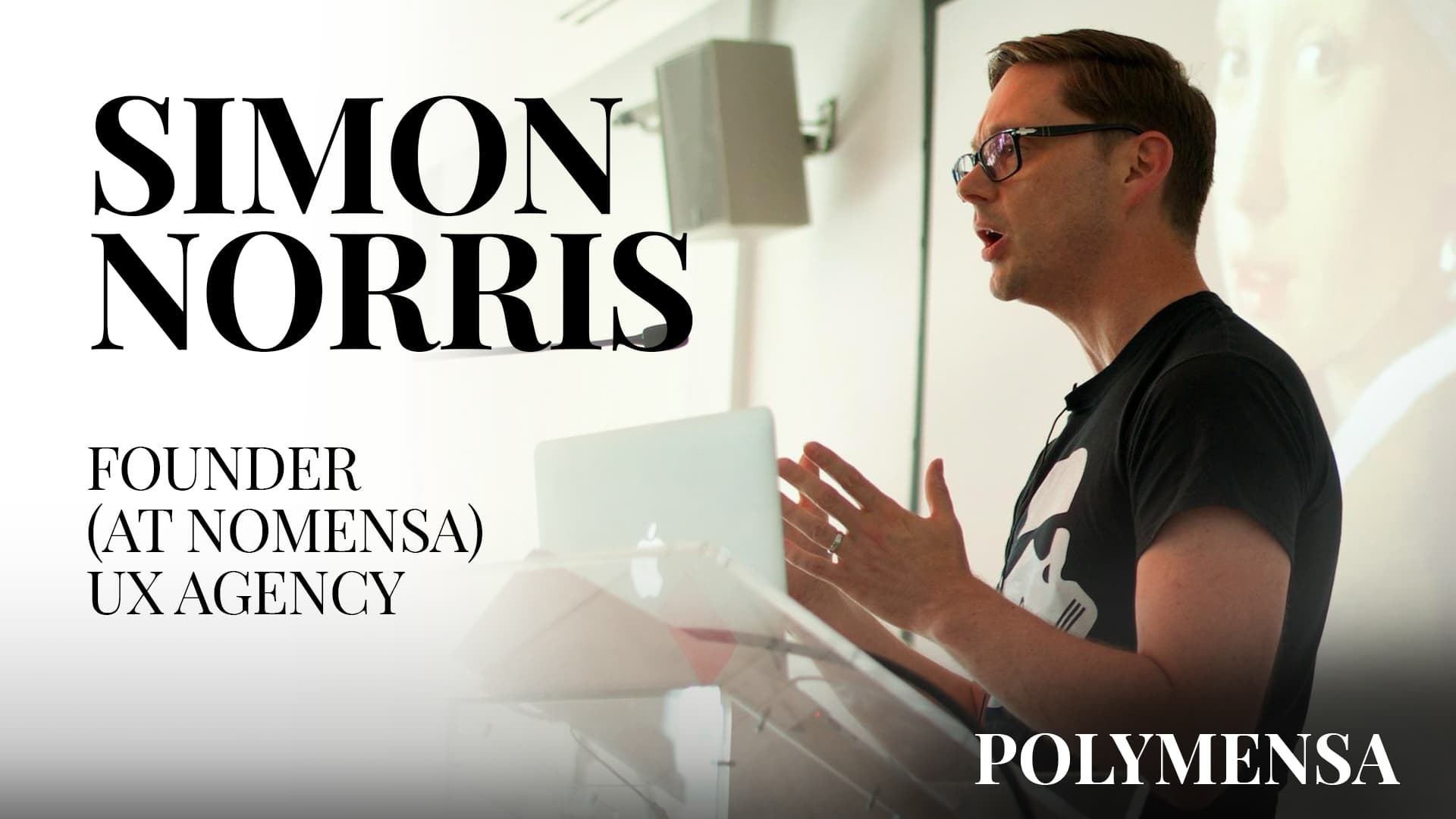
Simon Norris, founder at UX agency Nomensa
Efficiency of meetings
“As long as meetings have a clear pre-defined outcome we fit it into 1 meeting. But we prefer to have 3 small meetings, rather than 1 large meeting to be more effective.”
Open door policy to speak to founder
“I have an open door policy for anyone in my team. However I do have one key question when people come and see me: Is this something you want to tell me or want me to action?”
Book recommendations
Eat That Frog
“Eat that frog!” means to start your day with the biggest, most important, and most dreaded task. It's also the task you are most likely to procrastinate on. Brian Tracy is also about disciplining yourself to eat that frog first thing in the morning every single day.
Atomic habits
The key message in this book summary: A tiny change in your behavior will not transform your life overnight. But turn that behavior into a habit that you perform every day and it absolutely can lead to big changes. Changing your life is not about making big breakthroughs or revolutionizing your entire life.
Tiny Habits
Tiny Habits shows you the power of applying small changes to your routine to unleash the full power that habits have to make your life better. (similar to above)
4 hour work week
The 4 Hour Work Week is the step-by-step blueprint to free yourself from the shackles of a corporate job, create a business to fund the lifestyle of your dreams, and live life like a millionaire, without actually having to be one.
The new one minute manager
This book is all about delegation.
Deep Work
The book is split into two parts. The first explains why deep work maximizes productivity and why only few people practice it. The second part shows us how to actually do it and make deep work a regular practice in our lives.
The One Thing
The ONE Thing is the best approach to getting what you want. Where Keller has had huge success, he had narrowed his concentration to one thing, and where his success varied, his focus had too. When you want the absolute best chance to succeed at anything you want, your approach should always be the same. Go small.
There is no right or wrong time management - it has to fit your end goal and lifestyle. The far bigger question, however, is what are you going to do with your time and why? And on that note... will leave you with this beautiful analogy of our life clock.



